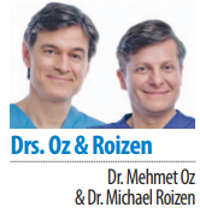Q: Can you help me convince my 27-year-old son that recreational marijuana is not completely benign? I am worried that he’s risking his health. — Janine G., Boulder, Colo.
A: We’re just beginning to understand the vices and virtues of recreational marijuana and the medical use of its active ingredients. That’s the case because the Drug Enforcement Agency labels it as a Schedule 1 drug, and it’s been virtually impossible to do studies with it, despite the fact that 47 states, the District of Columbia, and four of five U.S. territories allow some form of cannabis use! Fortunately, observational and retrospective studies, in which people share what their experiences have been with marijuana, do provide a pretty good road map to the trouble associated with its recreational use.
Cardiovascular problems: A new Scientific Statement from the American Heart Association highlights studies that have found an association between cannabis use and heart woes. Specifically heart attacks, heart failure, atrial fibrillation and stroke.
• Six percent of folks under the age of 50 who’ve had a heart attack also are cannabis users.
• People age 18 to 44 who are frequent marijuana users are two and a half times more likely to have a stroke than nonusers.
• Even using once in the past 30 days raises your risk of stroke by over 75%.
Risky medication interactions: Another new study conclusively shows cannabinoids (they’re cannabinol and the active constituents of cannabis) can interact with prescription medications and block or amplify the effects of everything from blood thinners and heart medicines to antifungals and antibiotics. That’s especially true for recreational pot, say the researchers from Penn State College of Medicine, because it can deliver cannabinoids at concentrations 10 to 100 times higher than medicinal doses.
Driving dangers: Recreational pot legalization in Colorado has led to 75 more traffic fatalities annually and a whole lot more accidents. Studies show that’s because cannabis (smoked or ingested) increases response time and lane weaving and dampens down neurocognitive and neuromotor skills needed to drive safely.We hope outlining these potential risks (in addition to the known risk from smoking anything) will help your son understand that recreational cannabis can be a serious health hazard.
Q: Lately I’ve been hearing that artificial sweeteners are not healthful. Aren’t they protecting me from eating added sugars that you always say are so harmful? Explain, please. — Gene F., Muncie, Ind.
A: Thanks for asking! According to a study in the Journal of the Academy of Nutrition and Dietetics, Americans are eating fewer foods with added sugars and high fructose corn syrup, which is good, but they’re also gobbling up and drinking more artificial sweeteners. Aspartame remains the most common added fake sugar — it’s in diet soda, sugar-free candy and chewing gum, but consumption of sucralose is increasing significantly. It’s important that everyone understand the role that artificial sweeteners may play in a wide array of health challenges.
• One European study of almost a half a million people found that over a period of eight years drinking two sweetened drinks a day (sweetened with either natural or artificial sugars) increased the risk of heart disease and death substantially, even for folks who maintained a healthy weight.
• Another recent study shows that the real bomb is delivered when you drink something with an artificial sweetener as you eat refined carbs like french fries! That stomps on regulation of your blood glucose.
• Plus they seem to affect your gut biome in various ways that make it harder to regulate glucose and weight.
• Artificial sweeteners may also make people hungrier and, in turn, eat more. Scientists think that’s because the zero-calorie treats turn on neural pathways that tell us to fuel up.
The bottom line: Eliminate any added sugars — fake or real — from your plate and opt for sugars that come along naturally with fiber, like those found in berries, melons and 100 percent whole grains.
Mehmet Oz, M.D. is host of “The Dr. Oz Show,” and Mike Roizen, M.D. is Chief Wellness Officer and Chair of Wellness Institute at Cleveland Clinic. Email your health and wellness questions to Dr. Oz and Dr. Roizen at youdocsdaily(at sign)sharecare.com.


